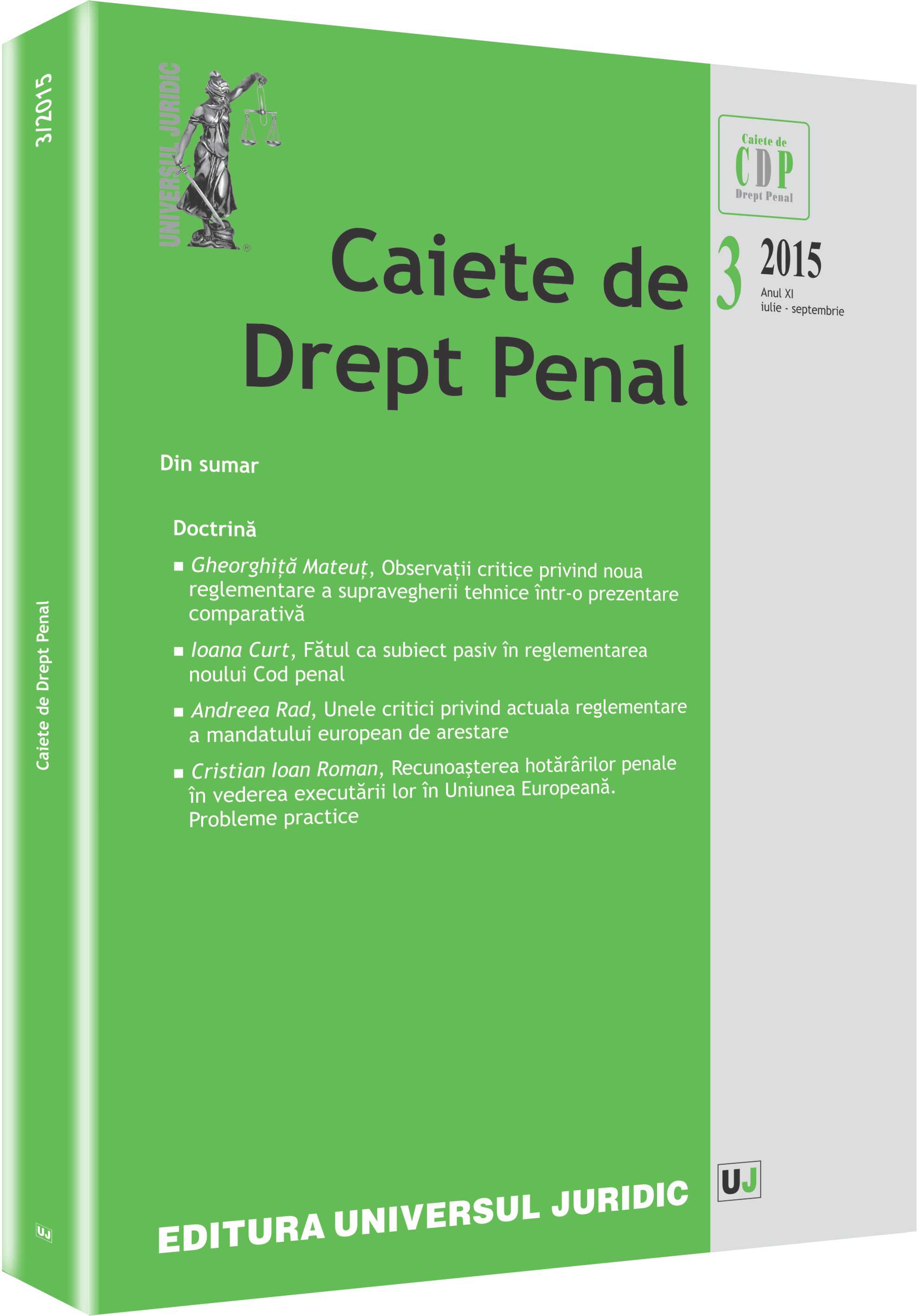Recunoaşterea hotărârilor penale în vederea executării lor în Uniunea Europeană. Probleme practice
The Recognition of Criminal Judgments for the Purpose of Enforcing it in the European Union. Practical Issues
Author(s): Cristian RomanSubject(s): Law, Constitution, Jurisprudence, Criminal Law
Published by: Universul Juridic
Keywords: mutual recognition; judicial decisions; custodial sentences; transfer of prisoners; framework decisions; implementation; EU Law; social rehabilitation;
Summary/Abstract: This article analyses the mutual recognition of criminal decisions and custodial sentences between the member states of the European Union which represents the cornerstone of judicial cooperation. A matter of this importance requires a range of legal instruments designed and capable to envisage an area of freedom, security and justice. In the following, I have presented the evolution of the legal framework from the Hague Convention in 1970 to the adoption of the package containing Framework Decisions that address the issue of detention of European Union citizens. I’ve tried to highlight the problems that occurred during the implementation in the national law and even when I could not submit a solution, I urged to discover the correct attitude. The main subject of my work regards the Council Framework Decision 2008/909/ JHA on the application of the principle of mutual recognition to judgements imposing custodial sentences or measures involving deprivation of liberty and the way it was implemented in Romania. After presenting the main details of the procedures, I address the first problem regarding the situation of a Romanian citizen, convicted in his home state, who would consider executing the custodial sentence in another member state. Afterwards, starting from a practical case I analyse the opinion of our Supreme Court with references to the directions stated by the European Court of Human Rights. At last, I examine the situation regarding the taking into account of a conviction, fully executed in another member state, in the course of new criminal proceedings.
Journal: Caiete de drept penal
- Issue Year: XI/2015
- Issue No: 03
- Page Range: 117-130
- Page Count: 14
- Language: Romanian

